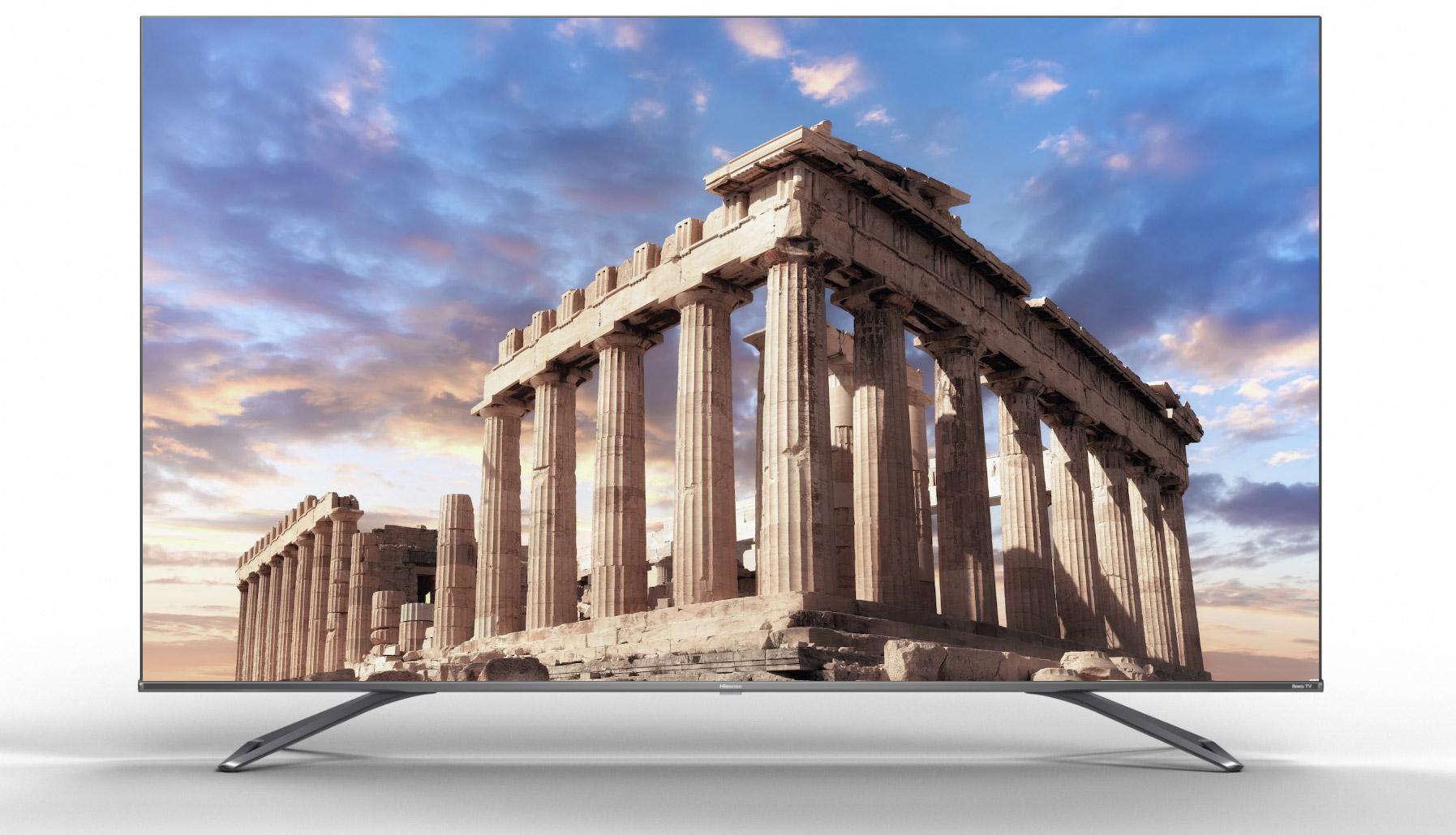Hisense, a Chinese electronics company, has been a prominent player in the market for over half a century. The company has made a name for itself by producing a diverse range of electronic products, including televisions. In recent years, Hisense TVs have become increasingly popular due to their affordability and impressive features. With a plethora of TV models available, including LED, OLED, and QLED TVs, and sizes ranging from 32 inches to a whopping 100 inches, Hisense has something for everyone.
But the question remains, are Hisense TVs a good investment for your home entertainment needs? Let’s delve into the durability and lifespan of these TVs.
When it comes to durability, Hisense TVs are built to last. The company uses high-quality materials and advanced technology to ensure that their products can withstand the test of time. However, like any electronic device, the lifespan of a Hisense TV depends on how well it is maintained and used.
So, are Hisense TVs worth the investment? The answer is a resounding yes! With their impressive features, affordability, and durability, Hisense TVs are an excellent choice for anyone looking to upgrade their home entertainment system. Whether you’re a movie buff or a sports fanatic, Hisense has a TV that will meet your needs and exceed your expectations.
Table of Contents
Factors Affecting the Lifespan of Hisense TVs
When it comes to the lifespan of Hisense TVs, there are a plethora of factors that can impact how long they last. It’s a complex issue that requires a deep dive into the intricacies of TV usage. Here are some of the most important factors to consider:
Usage
The frequency of use is a major factor that can impact the lifespan of a Hisense TV. TVs that are used for several hours a day are likely to wear out faster than those that are only used occasionally. This is because the constant use puts a strain on the TV’s components, causing them to wear out faster.
Environment
The environment in which a Hisense TV is used can also have a big impact on its lifespan. TVs that are exposed to extreme temperatures, humidity, or dust are more likely to experience problems than those that are kept in a clean, dry, and moderate environment. This is because these factors can cause damage to the TV’s internal components, leading to malfunctions and reduced lifespan.
Maintenance
Regular maintenance is key to extending the lifespan of a Hisense TV. This includes cleaning the screen and other components, checking for loose connections, and updating the software as needed. Neglecting these tasks can lead to a buildup of dust and debris, which can cause damage to the TV’s internal components.
Quality
The quality of the TV itself is also a crucial factor that can impact how long it lasts. Higher-end models with better components and construction are likely to last longer than cheaper models with lower-quality parts. This is because the higher-quality components are designed to withstand more wear and tear, resulting in a longer lifespan.
Power surges
Power surges can be a major threat to electronics, including Hisense TVs. Using a surge protector can help protect the TV from damage caused by power fluctuations. This is because power surges can cause damage to the TV’s internal components, leading to malfunctions and reduced lifespan.
Overall, the lifespan of a Hisense TV is a complex issue that requires careful consideration of a variety of factors. With proper care and maintenance, however, most Hisense TVs should last for several years.
Average Lifespan of Hisense TVs
The lifespan of a Hisense TV is a complex matter that is influenced by a variety of factors. These factors include usage, maintenance, and model. It is not a simple matter of a set number of years. Rather, the lifespan of a Hisense TV can vary greatly depending on these factors.
On average, a Hisense TV can last for around 10-15 years. However, this estimate is based on the assumption that the TV is used for around 8 hours a day and is properly maintained. But what does “properly maintained” mean? It means that regular cleaning of the screen and proper ventilation can help prevent overheating and prolong the life of the TV. Additionally, avoiding exposure to extreme temperatures and humidity can also help prevent damage to the TV’s internal components. Higher-end models may have a longer lifespan due to their higher quality components and construction. However, this also means that they may come with a higher price tag. So, it’s important to consider the model and its quality when making a purchase decision.
The lifespan of a Hisense TV is not a simple matter. It is influenced by a variety of factors, including usage, maintenance, and model. While the average lifespan is around 5-7 years, proper care and maintenance can help extend its lifespan. And, of course, choosing a higher-end model may also help ensure a longer lifespan.
Tips to Extend the Lifespan of Hisense TVs
To ensure that your Hisense TV lasts for a long time, there are a few tips that you can follow. These tips are of utmost importance and should be taken seriously. Here are some of the most important ones:
Keep your TV clean
Dust and dirt can accumulate on your TV over time, which can cause it to overheat and malfunction. This is a common problem that can be easily avoided by cleaning your TV regularly using a soft, dry cloth.
Avoid placing your TV in direct sunlight
Exposure to direct sunlight can cause your TV’s screen to fade and become discolored over time. To prevent this, make sure to place your TV in a shaded area or use curtains to block out the sun.
Use a surge protector
Power surges can damage your TV’s internal components, so it’s important to use a surge protector to protect your TV from electrical damage.
Don’t leave your TV on for extended periods
Leaving your TV on for extended periods can cause it to overheat and reduce its lifespan. Make sure to turn off your TV when you’re not using it to prevent this from happening.
Keep your TV away from heat sources
Heat sources like radiators and fireplaces can cause your TV to overheat and malfunction. Make sure to keep your TV away from these sources to prevent damage.
By following these tips, you can extend the lifespan of your Hisense TV and enjoy high-quality entertainment for years to come.
Signs that Your Hisense TV Needs Replacement
As with any electronic device, the lifespan of your Hisense TV is finite. Some TVs may last for years, while others may need to be replaced sooner. Here are some signs that your Hisense TV may need to be replaced:
Poor Picture Quality
If you notice that the picture quality on your Hisense TV has deteriorated significantly, it may be time to replace it. This could be due to a number of factors, including a faulty display panel or outdated technology.
Sound Issues
If you are experiencing sound issues such as crackling, popping, or distortion, it may be a sign that your Hisense TV needs to be replaced. This could be due to a faulty speaker or other internal components.
Frequent Repairs
If you find yourself constantly having to repair your Hisense TV, it may be more cost-effective to replace it. Frequent repairs can be a sign that the TV is reaching the end of its lifespan.
Outdated Technology
If your Hisense TV is several years old, it may be outdated in terms of technology. Newer models may offer better picture quality, sound, and features that your current TV does not have.
No Longer Supported
If your Hisense TV is no longer supported by the manufacturer, it may be time to replace it. This means that you will no longer receive software updates or technical support for your TV.
If you are experiencing any of these signs with your Hisense TV, it may be time to consider replacing it. While it can be difficult to part with a beloved electronic device, upgrading to a newer model can offer better performance and features.
Conclusion: Is a Hisense TV Worth the Investment?
After a thorough analysis of all the pertinent factors, it can be confidently asserted that investing in a Hisense TV is a wise decision. The price point is reasonable, the picture quality is exceptional, and the features are diverse, making Hisense TVs an excellent choice for those seeking a budget-friendly television. Furthermore, the brand has a well-established reputation for producing robust and long-lasting products, which means that your investment in a Hisense TV is likely to yield significant returns in the long run. Despite some minor drawbacks, such as limited app availability and occasional software glitches, these issues are not substantial enough to outweigh the benefits of owning a Hisense TV.
If you are in the market for a new television and are searching for a dependable and affordable option, a Hisense TV is undoubtedly worth considering.
Frequently Asked Questions
How long do Hisense TVs typically last?
The lifespan of a Hisense TV can vary depending on usage and maintenance. However, on average, a Hisense TV can last for around 4-6 years.
What factors can affect the lifespan of a Hisense TV?
The lifespan of a Hisense TV can be affected by several factors, including usage, maintenance, environmental conditions, and manufacturing defects.
Can a Hisense TV be repaired if it stops working?
Yes, a Hisense TV can be repaired if it stops working. However, the cost of repair may depend on the extent of the damage and the availability of replacement parts.
Is it worth buying a Hisense TV?
Yes, I personally use a Hisense TV as my main TV. Hisense TVs are known for their affordability and good value for money. They offer a range of features and specifications that can compete with more expensive brands.
Does Hisense offer a warranty for their TVs?
Yes, Hisense offers a warranty for their TVs. The length and coverage of the warranty may vary depending on the model and region, so it’s best to check with the manufacturer or retailer for specific details.

